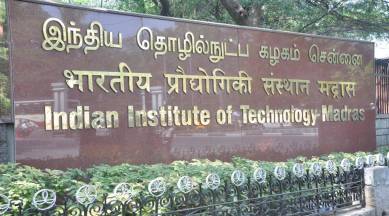Stay updated with the latest - Click here to follow us on Instagram
IIT-M tech to play ‘Pivot’al role in giving customised treatment for cancer patients
The AI-based tool developed by the scientists at IIT Madras will assist clinicians in developing individual-specific treatment plans for patients based on their DNA profiles

Scientists at IIT Madras have created a ground-breaking technology that can pinpoint an individual’s cancer-causing genes. The ‘Pivot,’ an Artificial Intelligence-based technology, will assist clinicians in developing individual-specific treatment plans for patients based on their DNA profiles.
The tool is based on a machine learning model that divides genes into tumour suppressors, or genes that prevent the development of cancer, cancer causing oncogenes or neutral genes.
“The model is to analyse information such as the frequency with which a gene mutates, its characteristics, the types of mutations, and the quantity of detrimental mutations to find the gene that causes cancer in a person, essentially to find uncommon genes that cause cancer,” Karthik Raman, associate professor and a core member of IIT Madras’ Robert Bosch Centre for Data Science and Artificial Intelligence, told The Indian Express.
Current cancer treatments are known to be detrimental to the overall health of the patient. The research team said the knowledge of the genes responsible for the initiation and progression of cancer in patients can help determine the combination of drugs and therapy most suitable for a patient’s recovery.
The model is mainly fed with genomic data of cancer patients sourced from the International Cancer Genome Consortium (ICGC) as well as The Cancer Genome Atlas Programme (TCGA). Raman said the challenge ahead would be sourcing more native Indian data even as ICGC has a little Indian data as well.
While the conventional way is tracing a cancer causing gene after evaluating samples from several patients and learning that the gene has mutated relatively frequently, Raman said their tool was to understand the unique and complicated aspects, unravelling features of certain unusual driver genes. He built the tool on the Python platform with the help of the dean, Raghunathan Rengaswamy, and Malavika Sudhakar, a research scholar who works on data science and knows about relevant medical aspects.
If what had significantly helped the IIT-M scientists was cancer genome data that was publicly available on platforms like ICGS, the effective application of the tool requires more Indian cancer genome data, which is not available yet on an exclusive local platform.
Noting that the prevalence of cancer in India has certain features and that every cancer is different, researcher Malavika said they are training their model only on existing cancer data, how different and contrarian they are in their characteristics in different people. “Our bodies have 10K genes. Not all, but at least 700 of them, are cancer-causing genes. More than prediction, the tool we developed is all about understanding genes for a customized treatment plan for each one,” she said.